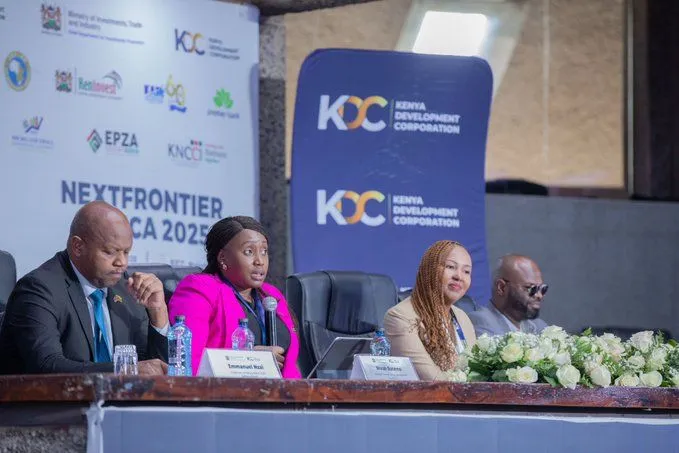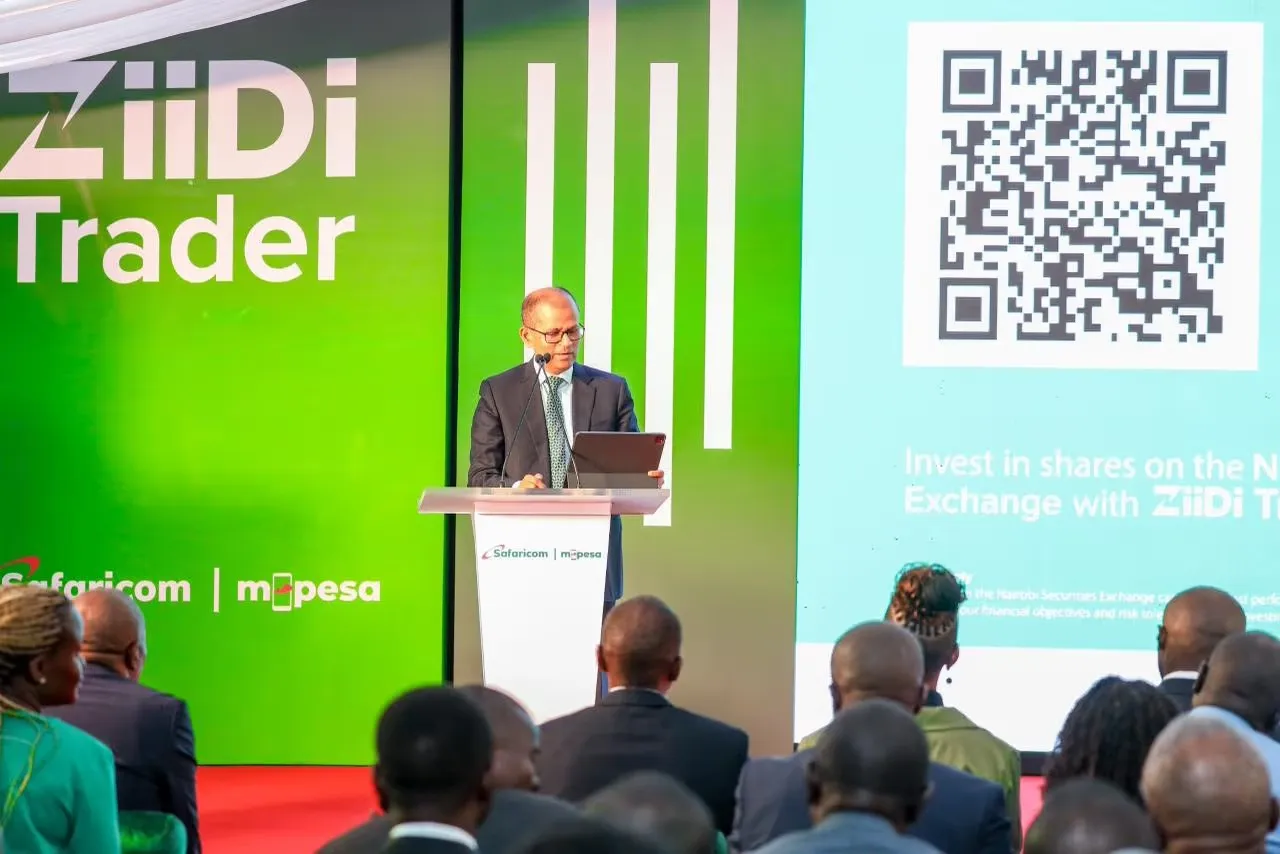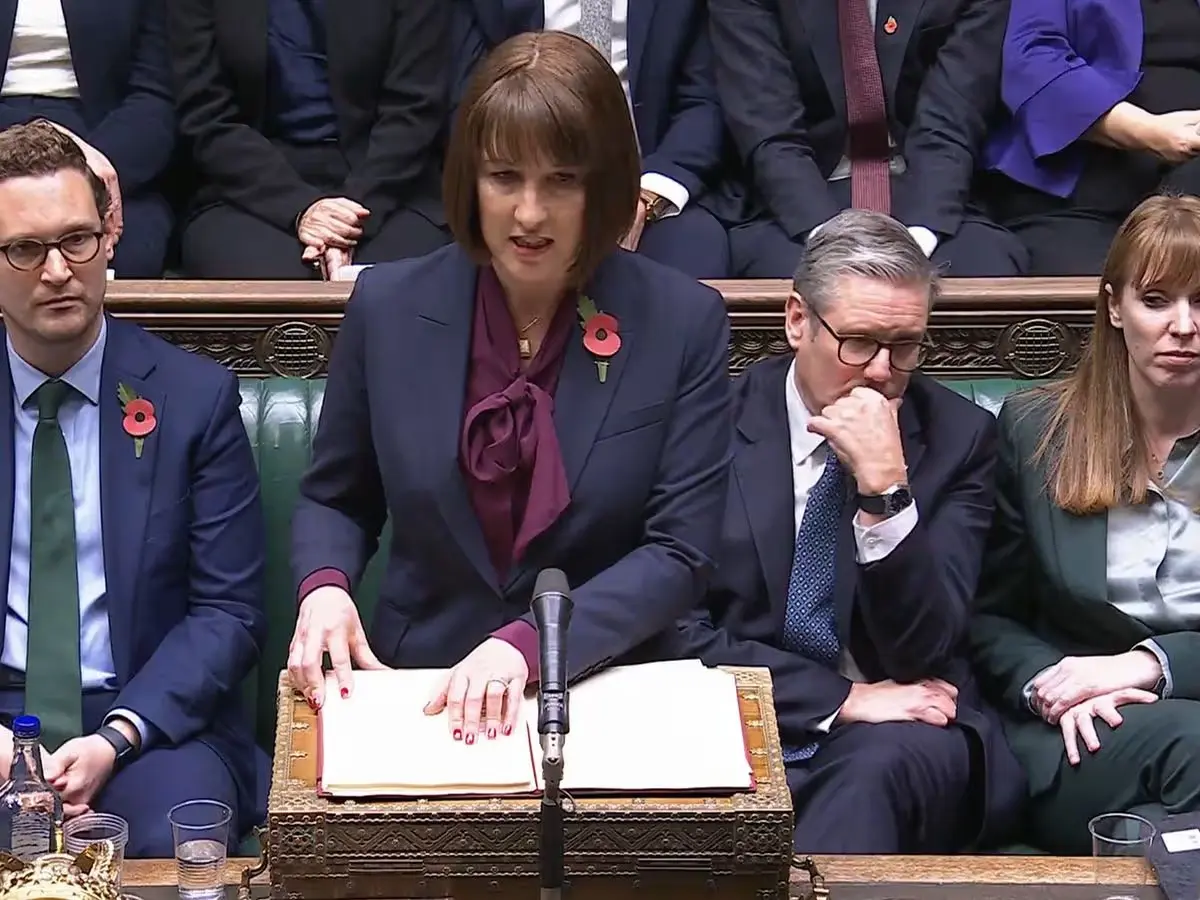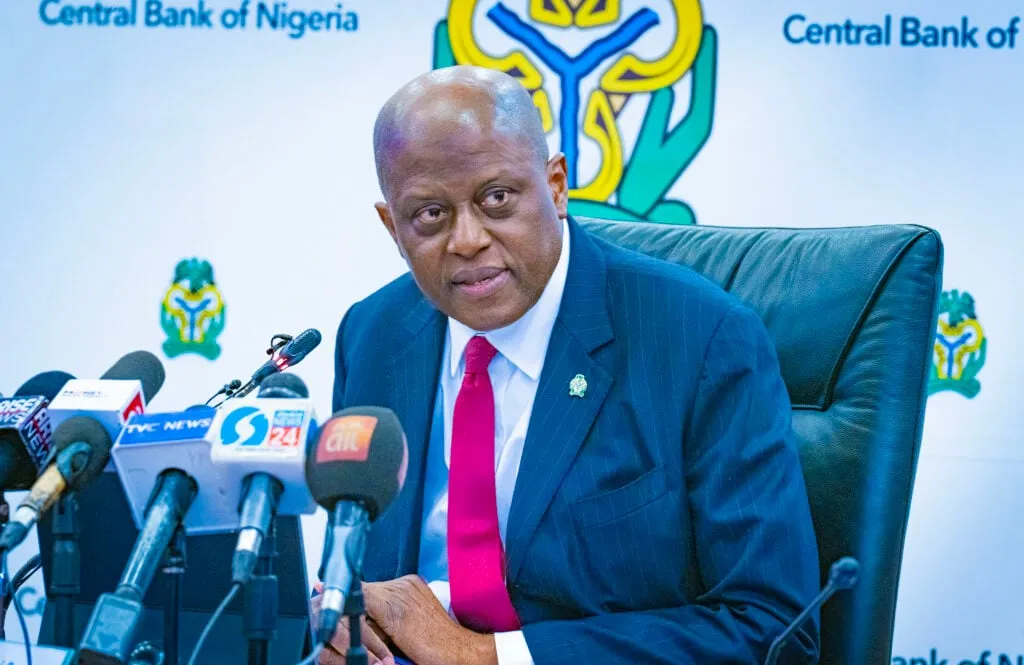The vibrant city of Nairobi is currently hosting a pivotal event poised to redefine Africa’s investment landscape: the inaugural NextFrontierAfrica Summit. This landmark gathering, which commenced today, marks a strategic push by Kenya to champion targeted, sector-based investment across the continent. Bringing together a diverse array of stakeholders, including global investors, influential policymakers, innovative entrepreneurs, and key development partners, the summit aims to unlock significant capital flows and accelerate sustainable growth within Africa’s most promising sectors. This initiative underscores Kenya’s growing ambition to position itself not only as an economic powerhouse in East Africa but also as a crucial gateway for international capital seeking high-impact opportunities across the continent.
The NextFrontierAfrica Summit: A Catalyst for Transformative Growth
The NextFrontierAfrica Summit is more than just a conference; it is a strategic convening designed to bridge the gap between burgeoning African opportunities and global investment capital. Its core objectives revolve around identifying, de-risking, and channeling investments into specific sectors that hold the greatest potential for economic transformation and job creation across Africa.
Participants at the summit engage in high-level discussions, workshops, and direct engagement sessions. The presence of investors, policymakers, innovators, and development partners creates a unique ecosystem for collaboration. Investors gain direct access to vetted projects and market insights, while policymakers can articulate their vision and demonstrate commitment to creating conducive investment environments. Innovators and entrepreneurs, often the driving force behind new economic activity, find a platform to showcase their solutions and secure crucial funding. Development partners, meanwhile, can align their support with private sector initiatives, amplifying impact.
The concept of “sector-based investment” is central to this summit’s philosophy. Rather than a broad, undifferentiated approach to investment, this strategy focuses on deep dives into specific industries, understanding their unique challenges, growth drivers, and policy needs. This targeted approach allows for more efficient allocation of capital, specialized expertise, and the development of tailored regulatory frameworks that can truly accelerate growth within these high-potential areas. It moves beyond a general “Africa rising” narrative to pinpoint where the most impactful and sustainable returns can be generated.
Nairobi, as the host city, is an ideal choice for such an event. Often dubbed the “Silicon Savannah,” Kenya’s capital has emerged as a leading technological and financial hub in East Africa, boasting a dynamic startup ecosystem, a growing middle class, and robust infrastructure. Its strategic location and well-developed financial services sector make it a natural nexus for facilitating cross-border investments into the wider African market.
Kenya’s Strategic Vision: High-Potential Sectors for Investment
Norah Ratemo, Director General of the Kenya Development Corporation (KDC), articulated Kenya’s strategic focus, describing the summit as a “defining moment for Kenya’s economic transformation.” The KDC, a state-owned development finance institution, plays a crucial role in mobilizing and channeling investment into priority sectors. The identified sectors are not arbitrary; they are areas where Kenya, and indeed much of Africa, possesses significant competitive advantages, unmet demand, and the potential for substantial value creation. These sectors include: digital and creative industries, healthcare, tourism, manufacturing, and post-harvest management.
Digital and Creative Industries: Powering Africa’s Future Economy
Africa is undergoing a profound digital transformation, driven by increasing mobile penetration, expanding internet access, and a youthful, tech-savvy population. The digital and creative industries represent a significant frontier for investment.
- Digital Economy: Africa’s digital economy is booming. Mobile phone penetration is rapidly increasing, fostering innovation in areas like mobile money (e.g., M-Pesa in Kenya), which has revolutionized financial services for millions. Fintech, e-commerce, and agritech startups are attracting significant venture capital. Countries like Kenya are home to thriving tech hubs, often referred to as “Silicon Savannahs,” that are incubating cutting-edge solutions for local and global markets. Investment opportunities abound in broadband infrastructure, data centers, software development, cybersecurity, and digital education platforms. The continent’s youthful population is driving demand for digital services, creating a vast consumer market. According to the World Bank, over 160 million Africans gained broadband internet access between 2019 and 2022, and the mobile technology sector alone is projected to contribute significantly to Africa’s GDP by 2025.
- Creative Industries: Beyond traditional tech, Africa’s creative economy is a burgeoning sector with immense potential. This includes music, film, fashion, gaming, and digital content creation. African artists, filmmakers, and designers are gaining global recognition, and investments in production studios, distribution platforms, and talent development can unlock significant economic value. The creative industries not only contribute to GDP but also foster cultural identity and provide meaningful employment for young people. Estimates suggest Africa’s film and audiovisual sector alone employs around 5 million people and contributes $5 billion to GDP, with the broader creative economy having the potential to create over 20 million jobs and generate $20 billion in annual revenues by 2030.
Healthcare: Addressing Critical Needs and Building Resilience
Africa faces significant healthcare challenges, including a high burden of disease, inadequate infrastructure, and a shortage of skilled personnel. However, this also presents vast investment opportunities to improve health outcomes and build resilient health systems.
- Infrastructure and Technology: There’s a pressing need for investment in hospitals, clinics, and specialized medical facilities. Beyond physical structures, technological advancements like telemedicine, AI-powered diagnostics, and digital health records can revolutionize healthcare delivery, especially in remote areas. The African health sector is estimated to be worth around $259 billion by 2030, with the potential to create over 16 million jobs.
- Pharmaceutical Manufacturing: Africa imports a significant portion of its pharmaceutical needs. Investing in local pharmaceutical manufacturing can reduce dependency, ensure drug security, and create high-value jobs. This includes production of essential medicines, vaccines, and medical devices. The current lack of pharmaceutical production is a pressing challenge for African markets given the high disease burden.
- Health Tourism and Specialized Care: As healthcare quality improves in some African nations, there’s potential for health tourism, attracting patients from within and outside the continent for specialized treatments. Investment in medical training and research institutions can further elevate the sector.
Tourism: Unlocking Africa’s Natural and Cultural Riches
Africa boasts unparalleled natural beauty, diverse wildlife, and rich cultural heritage, making tourism a vital sector for many economies. Post-pandemic recovery efforts are accelerating, and targeted investments can help the sector reach its full potential.
- Ecotourism and Wildlife Conservation: Investment in national parks, conservancies, and sustainable tourism lodges can protect biodiversity while generating revenue. This includes developing infrastructure that supports responsible wildlife viewing and community-based tourism initiatives. Sustainable and eco-tourism are on the rise in Africa.
- Cultural and Heritage Tourism: Promoting Africa’s rich history, diverse cultures, and vibrant arts scene can attract tourists seeking authentic experiences. This involves investing in museums, cultural centers, historical sites, and supporting local artisans. Cultural immersion is redefining African travel in 2025, with over 65% of international travelers to Africa in 2024 engaging in cultural experiences.
- Infrastructure and Connectivity: Improvements in airports, roads, and digital connectivity are crucial for enhancing the tourist experience and making destinations more accessible. Marketing and branding efforts are also key to attracting international visitors. International tourism in Africa recovered 96% of pre-pandemic levels in 2023.
Manufacturing: Driving Industrialization and Value Addition
Industrialization is a key driver of economic transformation, enabling countries to move up the value chain, create jobs, and reduce reliance on raw material exports. Manufacturing in Africa is poised for significant growth, especially with the advent of the African Continental Free Trade Area (AfCFTA), which aims to create a single market for goods and services across the continent.
- Import Substitution: Investing in local manufacturing to produce goods currently imported can save foreign exchange and stimulate domestic production.
- Agro-processing: Adding value to agricultural products through processing (e.g., food processing, textiles from cotton) can significantly increase export earnings and farmer incomes.
- Light Manufacturing: Sectors like textiles, apparel, consumer goods, and electronics assembly offer opportunities for job creation and skill development.
- Regional Value Chains: AfCFTA encourages the development of regional value chains, where different stages of production occur in various African countries, fostering intra-African trade and investment. While Africa’s share of global manufacturing has declined, the sector is six times more productive than agriculture and is crucial for the continent’s development potential.
Post-Harvest Management: Enhancing Food Security and Farmer Incomes
Agriculture remains the backbone of many African economies, but significant challenges persist, particularly in post-harvest management. Reducing losses after crops are harvested is critical for food security, farmer livelihoods, and overall economic stability.
- Reducing Food Loss: It is estimated that a significant portion of agricultural produce in Africa is lost between harvest and market due to inadequate storage, poor transportation, and lack of processing facilities. Investment in modern storage solutions (e.g., cold storage, improved silos), efficient logistics, and processing technologies can drastically reduce these losses. Farmers in Sub-Saharan Africa lose between 9% and 18% of their cereals each year after harvest, with other estimates closer to 30% for all agriculture.
- Value Addition: Beyond simply preventing spoilage, post-harvest management includes processing raw agricultural materials into higher-value products (e.g., drying fruits, milling grains, producing juices). This increases shelf life, creates new market opportunities, and boosts farmer incomes.
- Technology and Innovation: Solutions like solar-powered dryers, mobile processing units, and digital platforms connecting farmers to markets can revolutionize post-harvest practices.
These sectors, as highlighted by KDC, contribute significantly to Kenya’s GDP and hold immense, often untapped, potential for unlocking substantial economic value across Africa.
De-risking Investment and Bridging the Capital Gap
A central tenet of the NextFrontierAfrica Summit, and KDC’s mandate, is to “de-risk investments and bridge the gap between capital and innovation.” This acknowledges that while Africa offers high returns, it can also be perceived as having higher risks by international investors.
Understanding “De-risking” African Investments
“De-risking” in this context refers to strategies and mechanisms put in place to mitigate perceived or actual risks associated with investing in African markets. These risks can include:
- Political Instability: While many African countries are increasingly stable, perceptions of political risk (e.g., policy reversals, civil unrest, expropriation) can deter investors. Governments can de-risk by ensuring transparent governance, rule of law, and consistent policy environments.
- Regulatory Uncertainty: Complex or frequently changing regulatory frameworks can create unpredictability. Clear, stable, and investor-friendly regulations are essential.
- Currency Volatility: Fluctuations in exchange rates can impact returns for foreign investors. Hedging mechanisms and stable macroeconomic policies help mitigate this.
- Infrastructure Deficits: Lack of reliable power, transport, and digital infrastructure can increase operational costs. Investment in these areas by governments and development partners helps de-risk private sector projects.
- Access to Finance: Local financial markets may not always have the capacity or appetite for large, long-term investments. Development finance institutions (DFIs) like KDC play a crucial role here.
KDC’s role is to actively work to reduce these risks. This can involve providing guarantees, offering co-financing alongside private investors, facilitating access to market information, and advocating for policy reforms. By sharing risks and providing a more secure environment, KDC aims to attract both local and foreign capital that might otherwise be hesitant. The UNDP highlights that the perception of risk in Africa is often greater than the reality, and that well-prepared, clearly structured, and de-risked opportunities are needed to attract significant capital.
The “Deal Room”: Connecting Capital with Innovation
A key highlight of the summit is the launch of a “Deal Room.” This innovative initiative is designed to directly connect entrepreneurs and innovators with potential investors.
- Direct Pitching: The Deal Room provides a structured environment where African startups and businesses can pitch their projects directly to a curated audience of investors, including venture capitalists, private equity firms, and institutional investors. This cuts through traditional bureaucratic hurdles and accelerates the funding process.
- Driving Local and Foreign Direct Investment (FDI): By facilitating these direct connections, the Deal Room aims to drive both local and foreign direct investment. Local investors, including pension funds and high-net-worth individuals, are encouraged to fund domestic enterprises, while FDI brings in not just capital but also technology, management expertise, and access to global markets.
- Showcasing Innovation: It serves as a powerful platform to showcase the vibrant entrepreneurial spirit and innovative solutions emerging from Africa, particularly within the identified high-potential sectors.
Leveraging Domestic Capital: Pension Funds and Financial Institutions
The event comes as Kenya increasingly leverages its own domestic resources, particularly pension funds and financial institutions, to support national development. This is a significant trend across Africa, where growing domestic savings are being channeled into productive investments.
- Pension Funds as a Source of Long-Term Capital: African pension funds are accumulating substantial assets, representing a powerful source of long-term, patient capital. By investing in local infrastructure, businesses, and projects, these funds can contribute significantly to national development while generating returns for their members. African pension funds managed $500 billion in assets in 2020, a figure projected to grow to $7.3 trillion by 2050, yet less than 2.7% is allocated to infrastructure.
- Strengthening Local Financial Markets: Encouraging domestic financial institutions to participate in large-scale projects strengthens local capital markets, reducing reliance on external financing and fostering financial independence.
- Positioning as a Gateway: By demonstrating its ability to mobilize domestic capital and create a favorable investment climate, Kenya further positions itself as a reliable and attractive gateway for international capital looking to enter the broader African market. This strategy aligns with the broader narrative of “Africa financing Africa,” reducing dependence on foreign aid and external debt.
Inclusive Growth: The MSME Engine of Prosperity
A cornerstone of Kenya’s investment strategy, as emphasized by State Department for Trade Principal Secretary Juma Mukhwana, is inclusive growth, particularly through robust support for Micro, Small, and Medium Enterprises (MSMEs).
The Power of MSMEs in Africa
MSMEs are the backbone of most African economies. In Kenya, Mukhwana stated that “MSMEs make up over 90% of private sector activity and employ nearly 80% of Kenya’s workforce.” This mirrors trends across the continent, where MSMEs account for over 90% of businesses, more than 80% of employment, and over 50% of GDP in most African countries. They are crucial for:
- Job Creation: They are the primary employers, absorbing a large portion of the labor force, including youth and women, who might otherwise struggle to find formal employment.
- Poverty Reduction: By providing income-generating opportunities, MSMEs contribute directly to poverty alleviation and improved livelihoods.
- Innovation and Local Solutions: Many MSMEs are agile and innovative, developing solutions tailored to local needs and conditions.
- Economic Diversification: They contribute to economic diversification by operating across various sectors, from manufacturing and services to retail and agriculture.
- Inclusive Growth: Their widespread nature ensures that economic benefits are distributed more broadly across society, rather than being concentrated in a few large corporations or urban centers.
Challenges and Targeted Support for MSMEs
Despite their critical role, MSMEs in Africa often face significant challenges:
- Access to Finance: This is perhaps the biggest hurdle, with many small businesses struggling to access affordable credit from traditional banks due to lack of collateral, high interest rates, or perceived risk.
- Market Access: Difficulties in reaching broader markets, both domestic and international, due to limited distribution networks, lack of market information, and trade barriers.
- Technical Skills and Business Acumen: Many entrepreneurs lack formal business training, financial management skills, or technical expertise to scale their operations.
- Regulatory Burdens: Complex and often cumbersome regulatory environments can disproportionately affect small businesses.
Kenya’s investment strategy, therefore, is focused on “unlocking quality investments that generate decent jobs and drive sustainable prosperity” by specifically addressing these MSME challenges. This includes:
- Facilitating Access to Finance: Through initiatives like the Deal Room, and potentially through partnerships with financial institutions to offer tailored loan products or guarantees.
- Business Development Services: Providing training, mentorship, and technical assistance to improve business management, product quality, and market readiness.
- Creating Enabling Policy Environments: Streamlining regulations, reducing bureaucratic hurdles, and providing incentives for MSME growth.
- Promoting Linkages: Connecting MSMEs with larger corporations (like those in Coca-Cola’s supply chain) to integrate them into formal value chains.
By strengthening MSMEs, Kenya aims to build a more resilient, equitable, and prosperous economy that benefits a wider segment of its population.
Data-Driven Strategy: Informing KDC’s Strategic Plan 2.0
The insights and data gathered during the NextFrontierAfrica Summit are expected to play a crucial role in informing KDC’s Strategic Plan 2.0. This highlights a commitment to evidence-based policy-making and adaptive strategy development.
- Informing Strategic Plan 2.0: The discussions, pitches, and expert analyses from the summit will provide KDC with up-to-date market intelligence, identify emerging trends, and pinpoint specific investment opportunities and bottlenecks within the high-growth sectors. This data will be vital in refining KDC’s next strategic roadmap.
- Shaping Targeted Financing Solutions: By understanding the specific needs and challenges of different sectors and types of businesses (e.g., startups vs. established manufacturers), KDC can design more effective and tailored financing solutions. This might include specialized credit lines, equity investments, or blended finance models that combine public and private capital.
- Identifying Capital Access Gaps: The summit will help identify where capital is most needed but currently lacking. This could be specific sub-sectors, early-stage ventures, or businesses in particular geographical regions. KDC can then focus its efforts on filling these gaps, acting as a catalyst for further investment.
- Role of Partnerships: The success of KDC’s Strategic Plan 2.0 will heavily rely on strong partnerships between the government, private sector (both local and international), and development partners. These collaborations are essential for mobilizing resources, sharing expertise, and implementing effective programs.
This data-driven approach ensures that KDC’s efforts are aligned with market realities and maximize their impact on economic development.
Conclusion: Paving the Way for Africa’s Economic Renaissance
The inaugural NextFrontierAfrica Summit in Nairobi represents a bold and proactive step by Kenya to shape Africa’s economic future. By focusing on sector-based investment, de-risking opportunities, championing domestic capital, and prioritizing inclusive growth through MSMEs, Kenya is setting a powerful precedent for how African nations can attract and leverage investment for sustainable development.
The summit is more than just a platform for deal-making; it is a forum for forging partnerships, sharing knowledge, and building confidence in Africa’s immense potential. The insights gleaned and the connections made here are expected to have a lasting impact, informing strategic plans and catalyzing investments that will drive industrialization, create millions of jobs, enhance food security, and improve livelihoods across the continent. Kenya’s leadership in this endeavor signals a new era of self-driven economic transformation, where African nations actively shape their destiny by strategically engaging with global capital and fostering a vibrant, inclusive, and resilient economic future. The world is watching as Kenya leads the charge towards Africa’s next frontier of growth.
Ready to take your career to the next level? Join our dynamic courses: ACCA, HESI A2, ATI TEAS 7 , HESI EXIT , NCLEX – RN and NCLEX – PN, Financial Literacy!🌟 Dive into a world of opportunities and empower yourself for success. Explore more at Serrari Ed and start your exciting journey today! ✨
photo source: Google
By: Montel Kamau
Serrari Financial Analyst
4th July, 2025
Article, Financial and News Disclaimer
The Value of a Financial Advisor
While this article offers valuable insights, it is essential to recognize that personal finance can be highly complex and unique to each individual. A financial advisor provides professional expertise and personalized guidance to help you make well-informed decisions tailored to your specific circumstances and goals.
Beyond offering knowledge, a financial advisor serves as a trusted partner to help you stay disciplined, avoid common pitfalls, and remain focused on your long-term objectives. Their perspective and experience can complement your own efforts, enhancing your financial well-being and ensuring a more confident approach to managing your finances.
Disclaimer: This article is for informational purposes only and does not constitute financial advice. Readers are encouraged to consult a licensed financial advisor to obtain guidance specific to their financial situation.
Article and News Disclaimer
The information provided on www.serrarigroup.com is for general informational purposes only. While we strive to keep the information up to date and accurate, we make no representations or warranties of any kind, express or implied, about the completeness, accuracy, reliability, suitability, or availability with respect to the website or the information, products, services, or related graphics contained on the website for any purpose. Any reliance you place on such information is therefore strictly at your own risk.
www.serrarigroup.com is not responsible for any errors or omissions, or for the results obtained from the use of this information. All information on the website is provided on an as-is basis, with no guarantee of completeness, accuracy, timeliness, or of the results obtained from the use of this information, and without warranty of any kind, express or implied, including but not limited to warranties of performance, merchantability, and fitness for a particular purpose.
In no event will www.serrarigroup.com be liable to you or anyone else for any decision made or action taken in reliance on the information provided on the website or for any consequential, special, or similar damages, even if advised of the possibility of such damages.
The articles, news, and information presented on www.serrarigroup.com reflect the opinions of the respective authors and contributors and do not necessarily represent the views of the website or its management. Any views or opinions expressed are solely those of the individual authors and do not represent the website's views or opinions as a whole.
The content on www.serrarigroup.com may include links to external websites, which are provided for convenience and informational purposes only. We have no control over the nature, content, and availability of those sites. The inclusion of any links does not necessarily imply a recommendation or endorsement of the views expressed within them.
Every effort is made to keep the website up and running smoothly. However, www.serrarigroup.com takes no responsibility for, and will not be liable for, the website being temporarily unavailable due to technical issues beyond our control.
Please note that laws, regulations, and information can change rapidly, and we advise you to conduct further research and seek professional advice when necessary.
By using www.serrarigroup.com, you agree to this disclaimer and its terms. If you do not agree with this disclaimer, please do not use the website.
www.serrarigroup.com, reserves the right to update, modify, or remove any part of this disclaimer without prior notice. It is your responsibility to review this disclaimer periodically for changes.
Serrari Group 2025
















